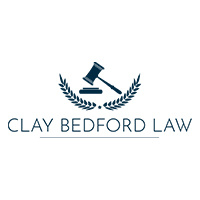Soulsbyville Juvenile Law Lawyer, California
Not enough matches for Soulsbyville Juvenile Law lawyer.
Below are all Soulsbyville Criminal lawyers.
Clay Bedford
✓ VERIFIEDCriminal, DUI-DWI, Misdemeanor, Felony, Traffic
I am an attorney licensed to practice law in the State of California. My practice is limited to criminal defense and juvenile cases. The criminal... (more)
Anthony Crippen Gonsalves
Landlord-Tenant, Juvenile Law, Criminal, Accident & Injury, Juvenile Law
Status: In Good Standing
Michael Thomas McEnroe
Real Estate, Lawsuit & Dispute, Criminal, Bankruptcy & Debt
Status: In Good Standing Licensed: 48 Years


